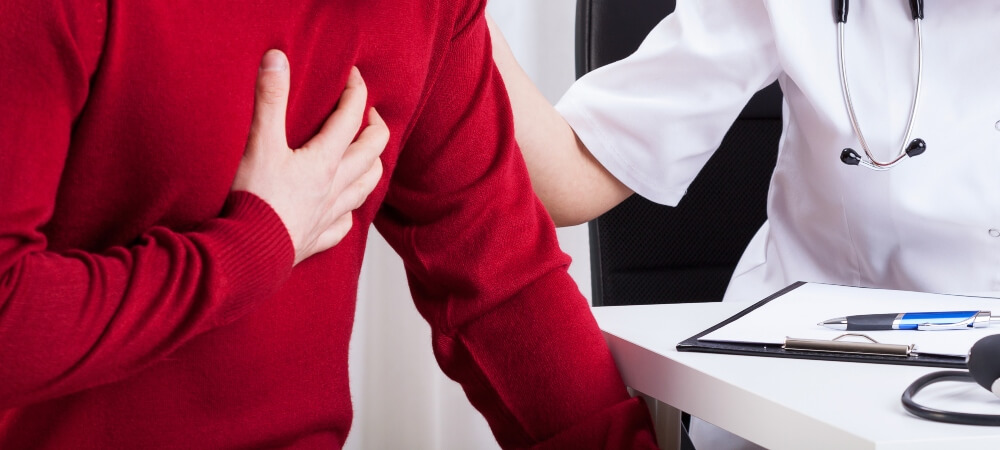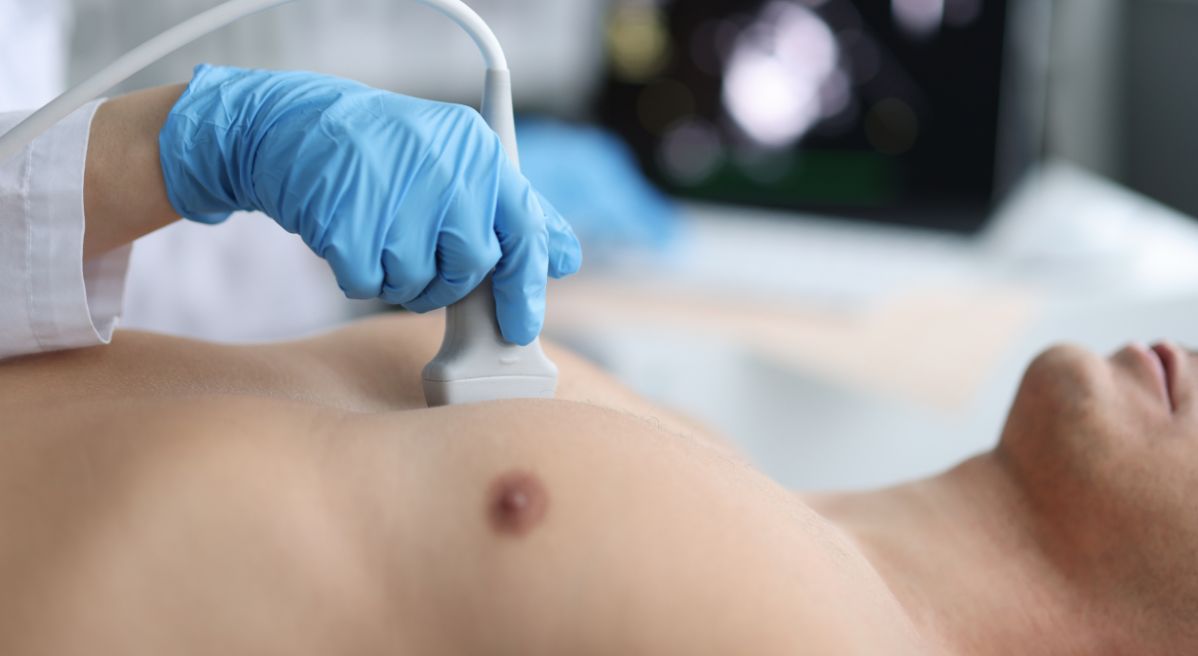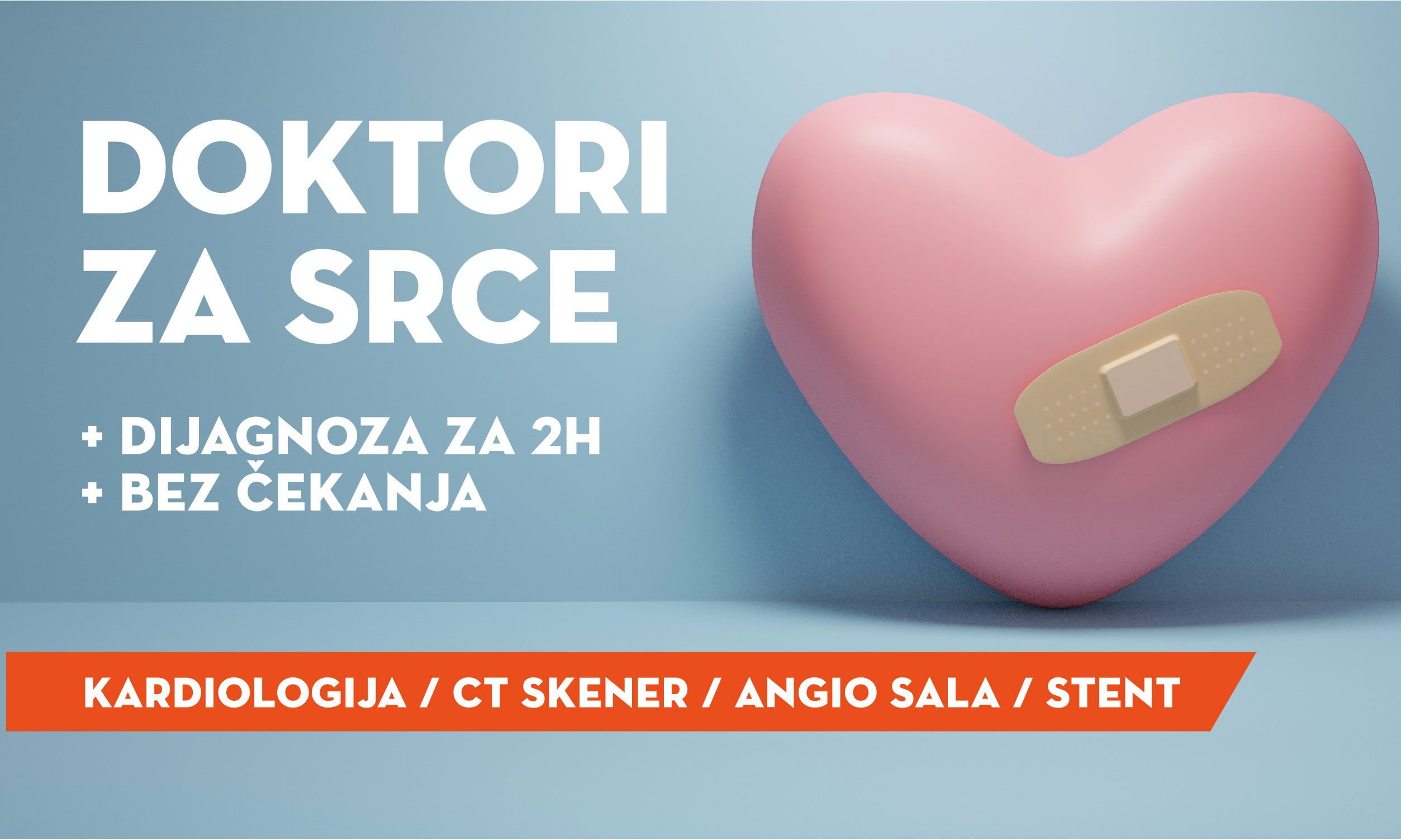A normal heart rate in adults is between 60 and 100 per minute, while it is higher in children. Acceleration can occur when we are exposed to great effort, in stressful situations, when we are excited, and then this acceleration will be harmless.
If we notice rapid beating or skipping of the heart that is not related to the listed conditions, especially if it occurs more often, it is necessary to perform a cardiology examination in order to determine the reason for the appearance of this irregularity.
Why does rapid heart rate (tachycardia) occur?
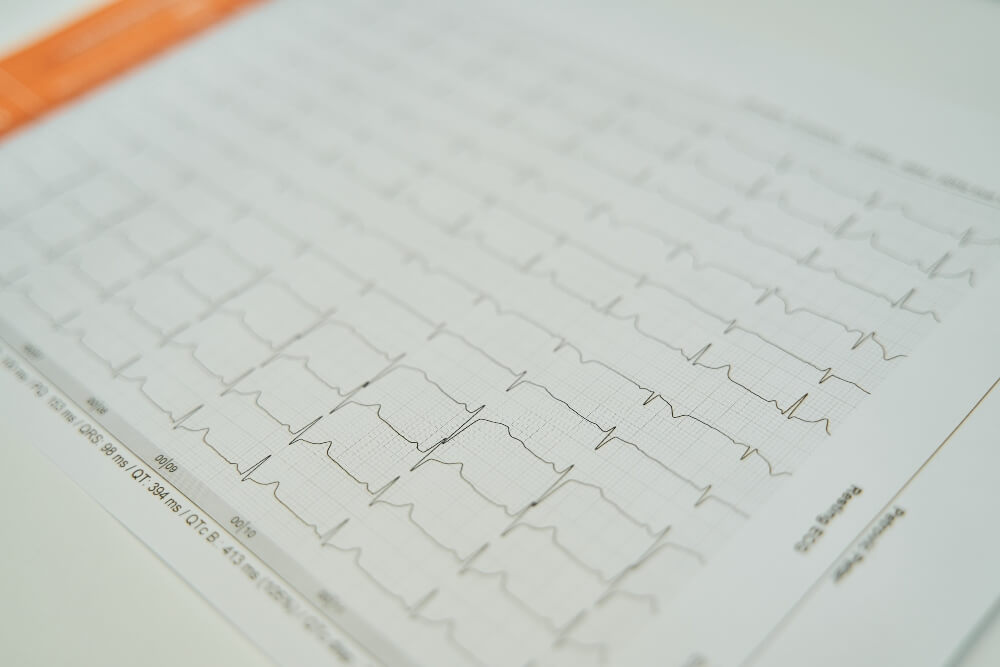
Numerous factors influence the occurrence of tachycardia. Some concern our daily routines, so we can control them more easily, while some are related to serious diseases and then it is impossible to solve the problem without the help of experts.
- Stress
It has already been mentioned that tachycardia or rapid heartbeat can be a harmless reaction to a state of stress, excitement or fatigue.
However, when we are under constant stress or in any other way mentally disturbed, these beats can be a frequent occurrence and additionally disturb and frighten us.
As a result of fears that something is wrong with the heart, the first person we turn to is often a cardiologist. In most cases, after all the necessary analyzes, it is determined that everything is fine with the heart, so the patient is empowered to seek the help of a psychologist, psychiatrist or, if possible, to find and adopt techniques for controlling stress in order to improve the mental and emotional state.
- Bad habits
It has been scientifically proven that smoking has an extremely negative effect on the heart and blood vessels because it reduces the flow of oxygen through the body, affects the occurrence of blockages in the blood vessels, and therefore the functioning of the entire blood flow, including the heart as its pump.
Excessive consumption of coffee and energy drinks has been linked to heart palpitations, heart palpitations and discomfort in that area. The reason for this is the ingredients that have such an effect on the body, namely caffeine and sugar, which are found in huge quantities in energy drinks.
Daily alcohol consumption also has a negative effect on heart rhythm.
- Heart disease
Unfortunately, sometimes tachycardia is a cause for concern because it can be a potentially fatal problem if left untreated.
It can occur as a result of one of the heart problems such as: angina pectoris, heart anomaly, inflammation, weakness of the heart muscle.
- Diseases of other organs
Tachycardia can be a consequence of diseases of the lungs, thyroid gland, kidneys, central nervous system and the like. In these situations, it disappears due to the treatment of the primary disease.
What are the symptoms of a fast heartbeat?
Patients can experience this phenomenon in different ways, but the most common are the following symptoms:
- chest discomfort
- palpitations
- heart palpitations
- appearance of weakness
- difficulty breathing
- sweating for no reason
- appearance of dizziness
What types of tachycardia exists?
There are several types of fast heart beats depending on what is causing the problem.
Ventricular tachycardia
This type occurs as a result of the existence of an ectopic center in the ventricles. It is characterized by a series of three or more beats with a frequency between 120 and 200 beats per minute.
It occurs due to acute myocardial ischemia, cardiomyopathy, myocarditis, and other heart problems.
It is potentially fatal and must be treated.
Supraventricular tachycardia
This type of rapid heartbeat is triggered by impulses that start from the atria. The number of beats in this case ranges between 100 and 250 per minute.
It can also happen to completely healthy people when they are exposed to stress, exertion or due to too much coffee, cigars or alcohol. On the other hand, it can be a sign of anemia, problems with the thyroid gland, etc.
This arrhythmia usually passes quickly, but if it returns often, you should consult a cardiologist.
Sinus tachycardia
In this type of rapid heartbeat, the problem arises in the sinus node.
Sinus tachycardia does not have to be dangerous, it can be caused by emotions or physical effort and then we say that it is physiological. Pathological sinus tachycardia is a problem and it occurs in case of anemia, hyperthyroidism, dehydration, heart failure.
It is important to find the cause of this tachycardia in order to treat it effectively.
When should you see a doctor?
When heart palpitations occur often, it is mandatory to consult a doctor. Even if the pain is not severe at that time, it is safest for you to consult a cardiologist to find out the exact reason for the phenomenon and whether there is a need to introduce drugs.
If the heart rate exceeds 120 per minute or if you feel faint, contact your doctor immediately.
Very often it happens that tachycardia is discovered accidentally, as part of an examination due to some other disease or condition, but also during systematic examinations.
The best way to keep your heart health in check is with annual heart exams. Pulse cardiology center offers several examination packages, choose the one that suits you best and schedule an appointment.
How is tachycardia diagnosed?
In diagnosing tachycardia, it is possible to rely on several methods. It will depend on the patient which will be used, sometimes everything from the list will be needed, and sometimes not. In any case, you can expect some of the following if your doctor suspects tachycardia:
- Complete blood analysis – is an analysis that represents the basis, it gives important information about the values of red, white blood cells and platelets.
- Electrocardiogram (ECG) – this method is used to record the electrical activity of the heart and is among the most important for detecting arrhythmias of all kinds. The electrocardiogram is a non-invasive and reliable method, the only drawback may be that the recording does not last long, so it is possible that the arrhythmia does not appear at that moment. But there is a solution for that too.
- 24-hour holter – in this way, it is possible to monitor the electrical activity of the heart during a whole day, and if necessary, even longer. This method provides important information about the way the heart works in certain situations and during different daily activities.
- Ergo test (load test) – is also a non-invasive method used to measure the activity of the heart during moments of load. It is performed while the patient is on an ergo bike or treadmill. The effort to which the person is exposed is gradually increased and the heart’s work is observed in moments of stress. In this way, it is possible to spot problems that do not occur in idle mode.
- Electrophysical examination of the heart – is an invasive procedure for determining the cause of arrhythmias. It is often followed by radiofrequency ablation, which should stop further arrhythmias.
- Coronarography – there are non-invasive MSCT coronary angiography and invasive coronary angiography, which also provide the opportunity to accurately determine the cause of heart failure.
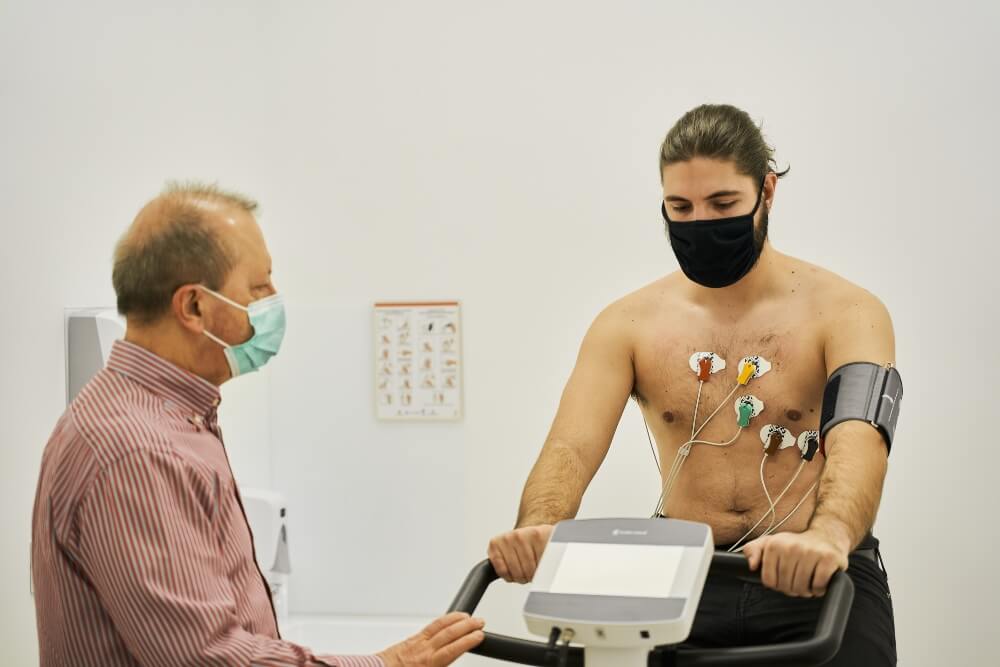
Arrhythmia Fast Track
In order to enable our patients to quickly diagnose and treat problems, we have designed the Fast Arrhythmia Track, which includes:
- Emergency reception
- Complete diagnostics and examination
- Observation of the situation
- Cardiac intervention (if needed)
In this way, patients receive the best care and adequate treatment of their problems in the shortest possible time.
Treatment of rapid heartbeat
Only after the analyzes performed, among which an electrocardiogram and a complete blood count are mandatory, is the determination of adequate therapy followed.
Cardiologists usually first decide, if the patient’s condition allows it, to determine a good therapy that would reduce the probability of tachycardia. Then, when the drugs are not enough and cannot ensure the normal functioning of the heart, the installation of a pacemaker, ablation or internal cardioversion is recommended. A heartbeat that deviates from normal is not necessarily dangerous, but it will almost always worry us. We need to choose a cardiologist whom we can trust and do basic analyzes in order to know for sure whether the tachycardia that occurs to us is physiological or pathological.
At Pulse Cardiology Center, we are always here for you. Call and you will get an appointment in the shortest possible time.

